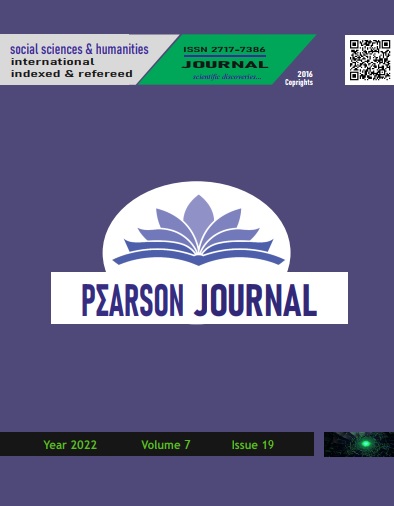THE RELATIONSHIP BETWEEN NUTRITION AND HEALTH, NUTRITIONAL HABITS DURING THE COVID-19 PANDEMIC: THE CASE OF THRAGE REGION IN TURKEY
DOI:
https://doi.org/10.46872/pj.548Keywords:
Covid-19, water consumption, healthy nutrition, chronic deseases, meal skippingAbstract
In this study determined the nutritional habits, and the relationship between their nutritional status and their health status of individuals living in the Thrace region during the Covid-19 pandemic. The relationship between the participants (1023person)' daily water consumption and body mass index (BMI) values, diabetes was statistically significant (?2: 33,444; P<0.05), (?2: 13.640; P<0.05) respectively. There was no significant relationship between daily water consumption and stomach ailments (?2: 4.070; P>0.05). Forty-five point five percentage of the participants was skip lunch, 6.9% was skip dinner, 23.2% was skip breakfast. Twenty three point seventeen pergentage of participant wasn’t skip meals. The relationship between skipping meals and stomach ailments, diabetes was statistically insignificant (?2: 2.777; P>0.05), (?2: 6.659; P>0.05), respectively. Thirty five point eight pergentage of the participants were eating fast, 49.3% were eating at normal speed, and 15% were eating slowly. The relationship between eating speed and BMI values was found to be statistically significant (?2: 66.477; P<0.05). There was a positive and significant relationship (r=0.246; P<0.05) between eating speed and BMI groups. As the rate of eating increased, the probability of entering the overweight group increased. While 50.34% of the participants stated that the taste of the food affected their desire to eat the most, 40.2% of the participants stated that their mood changes greatly affected their desire to eat. Consumers should be informed about the importance of meals and water, and the nutritional values of foods.




